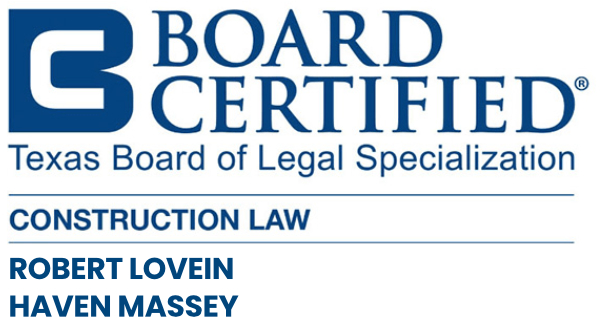All employment relationships are contractual in nature, but most employers do not require their employees to sign a formal written employment agreement and instead rely upon an informal oral agreement. In most circumstances, an oral agreement for lower-level employees is sufficient; however, for at-will employees who will have access to confidential or propriety information, like client lists, formulas, or business processes, the employer can protect the company by having the employee execute a written employment agreement that contains provisions that protect the company’s confidential information and restricts the departing employee from directly competing with the employer in a similar business. For executives and/or upper-level management employees, a written employment agreement is common practice and necessary to memorialize the terms of the employment relationship and to protect the employer. Below is a brief discussion of the most common written employment agreement provisions.
Lovein Ribman’s employment attorneys are well versed in all types of employment agreements and routinely counsel businesses of all sizes on employment agreements and the creation/modification of employments agreements. If you are in the process of hiring a new employee or executive, please call us at (888) 368-2483 for a free no-obligation consultation. Below is a brief discussion of some of the most common and import employment agreement provisions.
The Term of Employment
For at-will employees, the employment agreement must expressly state that the at-will relationship is not being altered by the written agreement and that the term of employment is at the will of either party, as opposed to a specific time period. In contrast, for executive employees and upper-level management, the employment agreement should expressly state the term of the employment and how the term is renewed or extended. Most term employment agreements are for 1-3 years or terminate at the end of a project or assignment. However, the employer should retain the right to terminate the relationship prior to the expiration of the term, upon the happening of an event like losing a major account, sale of the company, merger, or change in control or ownership. Although a fixed term agreement terminates at the end of the term; if the employee continues to work beyond the term without extending the written agreement, Texas courts may presume the agreement was renewed by the parties’ conduct.
Benefits
The employment agreement should address the nature and type of benefits the employer will offer the employee during the term of employment. Typical benefits include paid time off (PTO), including vacation and sick leave; medical, dental, and vision insurance; professional membership dues, continuing education, and retirement plans. PTO typically includes vacation and sick pay and for a new employee ranges from 2-3 weeks. The employer may offer to pay the employee’s personal medical insurance, but not the remaining members of the employee’s family. Other benefit incentives can include repayment of student loans, signing bonus, and relocation expenses. The nature and type of benefits are typically negotiated and part of the overall compensation package.
Outside Activities
The employment agreement should address whether the employee is allowed to participate in outside activities, such as working outside the business, researching, publishing articles, teaching, and/or consulting, and whether the income earned from these activities, if any, belongs to the employer, the employee, or will be shared equally. The employment agreement may also address who will own any inventions and/or patents the employee discovers while employed by the employer, which are typically assigned to the employer. Again, the type of outside activities and compensation for performing the activities, are typically negotiated during the offer and acceptance stage of employment.
Restrictive Covenants
Restrictive covenants, typically referred to as “non-compete” and “non-solicitation” provisions, have become common in employment agreements. A “non-compete” provision restricts the departing employee from working within a specific geographical radius for a specific amount of time following termination of the employment relationship. In contrast, a “non-solicitation” provision prohibits the departing employee from actively seeking to attract the employer’s customers, employees, and contracts away from the employer upon termination of the employment relationship.
In Texas, both non-compete and non-solicitation provisions are enforceable if they are reasonable and only seek to protect the former employer’s legitimate business interest. Section 15.50 of the Texas Business and Commerce Code sets forth the requirements for an enforceable non-compete provision. Specifically, Section 15.50 requires the non-compete provision to be limited in time, geographical area, and scope of the activities to be restrained, in a manner such that it does not impose a greater restraint than is necessary to protect the goodwill and other business interests of the former employer. Generally, a provision that limits the departing employee from engaging in a similar type business or operation that is within the same geographical area that the employee performed his/her duties, and for a period of 1-2 years, has been held to comply with Section 15.50.
Protection of Confidential Information
Employment agreements should contain a provision protecting the employer’s “confidential information”, meaning information that is not generally known to the public and that is used, developed or obtained by the employer in connection with its business, including but not limited to (i) information, observations and data obtained by the employee while employed by the company and its predecessors, concerning the business or affairs of the company, (ii) products or services, (iii) fees, costs and pricing structures, (iv) designs, (v) analyses, (vi) drawings, photographs and reports, (vii) computer software, including operating systems, applications and program listings, (viii) flow charts, manuals and documentation, (ix) data bases, (x) accounting and business methods, (xi) inventions, devices, new developments, methods and processes, whether patentable or unpatentable and whether or not reduced to practice, (xii) customers and clients and customer or client lists (including names of contact persons, purchasing patterns or preferences, past purchase and sale history and other information), (xiii) other copyrightable works, (xiv) all production methods, processes, technology and trade secrets, (xv) business strategies, acquisition plans and candidates, financial or other performance data and personnel lists and data, and (xvi) all similar and related information in whatever form.
Termination
Texas law recognizes five types of termination provisions: (1) termination at-will; (2) termination for good cause; (3) termination for good faith dissatisfaction; (4) termination upon written notice; and (5) non-durational termination.
The typical term employment agreement will contain provisions regarding termination of the employment relationship prior to the end of the employment term. In contrast, an at-will employment agreement must expressly state that either party can terminate the relationship at any time with or without cause, with an express disclaimer that nothing contained within the agreement is intended to, nor does, modify the at-will relationship.
Typically, for term employment agreements, only the employer will have the right to terminate the employment relationship “for cause” and upon the happening of a serious event like a felony conviction, use of drugs or abuse of a controlled substance, or a violation of a material provision of the employment agreement or the employer’s policies and procedures, damage to company property, breach of fiduciary duties, gross negligence or willful misconduct, harassment of employees or customers, or insubordination. For minor violations, the employment agreement may contain a notice and cure provision, which affords the employee an opportunity to cure the violation before the employer has the right to terminate the employment relationship; typically, anywhere from 10-30 days. In contrast, both parties should have the right to terminate the employment relationship “without cause”, meaning for no stated reason, upon providing 60-90 days-notice to the other party. This is an important provision because the parties do not necessarily know whether the employment relationship will be a good fit until they begin working together and either party may want to exit the employment relationship prior to the term of the agreement and go their separate ways. Typically, if the employee terminates the agreement under this type of provision, he/she will receive any accrued unpaid salary or bonuses. If the employer terminates the relationship “without cause” then generally the employer will provide a form of severance pay and any accrued and unpaid wages/bonuses.
The employment agreement may also contain a provision which terminates the relationship upon the death or disability of the employee. “Disability” will typically be defined as the inability to perform the essential functions of the employee’s position for a negotiated period of 60-180 days, commonly referred to as the “qualifying period”. During the qualifying period, the agreement may require the employer to continue paying the employee’s salary. If it does not, then the employee should purchase disability insurance to cover a portion of his/her salary during the qualifying period.
Again, the above discussion includes just some of the essential provisions of a well drafted employment agreement.
















